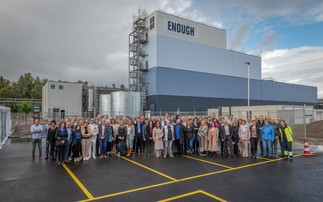Cereal giant has pledged to support a million smallholders by 2030, while continuing work towards its waste, energy, and GHG goals
Kellogg has this week announced its latest raft of social and environmental commitments under its 'Better Days' initiative, with CEO Steve Cahillane promising the firm will "do everything we can to leave the world a better place than we found it".
The new programme is explicitly aligned with Sustainable Development Goal 3 (SDG3) the global target to end hunger.
It includes 2030 targets for Kellogg to support a million farmers and smallholders to deliver climate-smart farming, feed 375 million people through donations, and continue its work to reduce food waste, responsibly source ingredients, and switch to sustainable packaging.
"Today, the number of people affected by food insecurity is staggering," said Cahillane. "There are more than 820 million hungry people in the world, the majority of whom are women and girls. As a leading global plant-based food company, achieving food security is at the heart of Kellogg Company's commitment to society."
As part of the new strategy farmers will be offered access to programmes focused on climate, social, and financial resiliency, Kellogg said. The initiatives will include advice on how to embrace climate smart agricultural practices, maximise yields, tackle deforestation, and reduce GHG emissions.
Kellogg is also a member of the Science-Based Targets initiative, under which it has a goal to cut its direct greenhouse gas emissions 45 per cent by 2030, while reducing its supply chain emissions 15 per cent.
The new goals build on Kellogg's existing 'Breakfasts for Better Days' initiative, which established a series of social and environmental goals for the snacks and cereals giant.
By 2020, the firm aims to slash energy use and greenhouse gas emissions by 15 per cent against a 2015 baseline. According to the latest data, the firm has cut its greenhouse gas emissions by 12.9 per cent putting it within reach of the target. But it said the impacts of climate change are already hampering its ability to cut emissions faster.
"For example, droughts have limited clean hydropower output, and lower oil and gas prices encourage utilities to use more fossil fuels in some markets," Kellogg admitted in the 2019 sustainability report.








